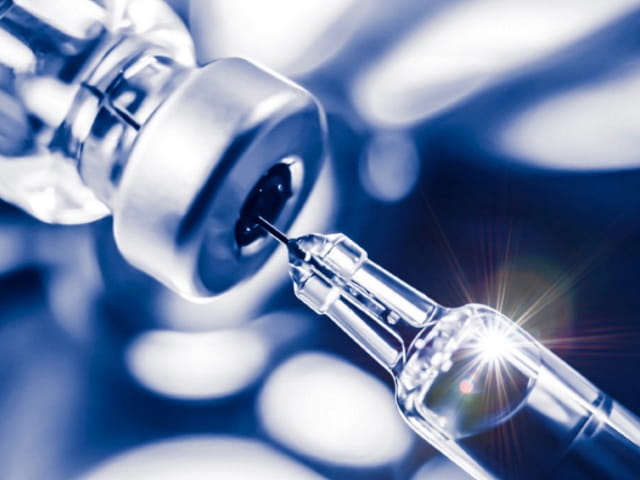Prefilled syringes are a popular drug delivery device, providing a reliable and safe solution that delivers an exact dose of a pharmaceutical product. With extensive experience testing a variety of syringes for functionality and integrity, Element can help you successfully navigate regulatory requirements for testing prefilled syringes.
While prefilled syringes can be used as standalone drug delivery systems, they are also often used in autoinjectors. Prefilled syringes and needle-based injection systems have multiple components that must be evaluated for functionality and integrity. There are several types of prefilled syringes, including glass filled syringes, plastic prefilled syringes or needle free (luer lock) syringes. Element’s medical device experts verify the safety of prefilled syringes and autoinjector components with both standard and non-standard test methods. Looking to talk about your syringe testing needs? Speak with an expert.
Industry test standards for prefilled syringes
ISO 11040, which consists of 8 parts, evaluates the mechanical properties of these syringes and tests to ensure the device performs properly when components are exposed to different forces. There are also several other standards and regulatory guidance documents that outline functional syringe testing related to mechanical specifications, including ISO 7886, ISO 8537 (syringes for insulin use), and ISO 11608 (autoinjectors).
Additionally, ISO 7886 specifics the test methods for evaluating empty sterile hypodermic syringes, both with and without the needle. Element offers prefilled syringe testing to these International Organization for Standardization (ISO) methods and will assist in developing test protocols for your delivery system to support regulatory submissions and safe product use. Request a quote from Element’s syringe testing lab today.
Mechanical syringe testing
Testing syringes to ISO 11040 is critical to ensuring drugs are administered to patients safely. Element’s ISO 11040 syringe testing services include the following tests:
Round flange
- C1: Flange breakage resistance
Luer cone
- C2: Luer cone breakage resistance
Plunger stopper
- E: Glide force test method to evaluate syringe lubrication
Needle
- F: Needle penetration test
- G1: Needle pull-out force
Adapter collar
- G3: Luer lock adapter collar pull-off force
- G4: Luer lock adapter collar torque resistance
Tip cap
- G5: Luer lock rigid tip cap unscrewing torque
Needle shield
- G6 – Pull off force of the shield
- G7 – Closure system liquid leakage
The Element Advantage
Mechanical properties of syringes are tested to ensure the device performs properly when exposed to different forces. Ensure the safety of prefilled syringes and autoinjector devices when you partner with Element’s medical device experts for mechanical syringe testing.
For more information about our needle-based injection system testing services or to request a quote, contact us today.
Related Services

Medical Device Testing
As a comprehensive testing partner, you’ll enjoy the benefit of a single supplier source for all of your testing needs, from mechanical testing and environmental simulation to EMC and wireless device testing.

Microbiological Testing
Our experts undertake a wide range of projects for medical device and pharmaceutical manufacturers, from pathogen and bioburden testing to endotoxin and cytotoxicity analyses.

Test Protocol for Medical Devices
A protocol and plan will mitigate your risk, prevent confusion, set clear expectations, and preserve the necessary information for future reference and use.

Resources
Discover blog posts, articles, white papers, webinars, and advice from our world-leading testing, inspection, and certification experts.

